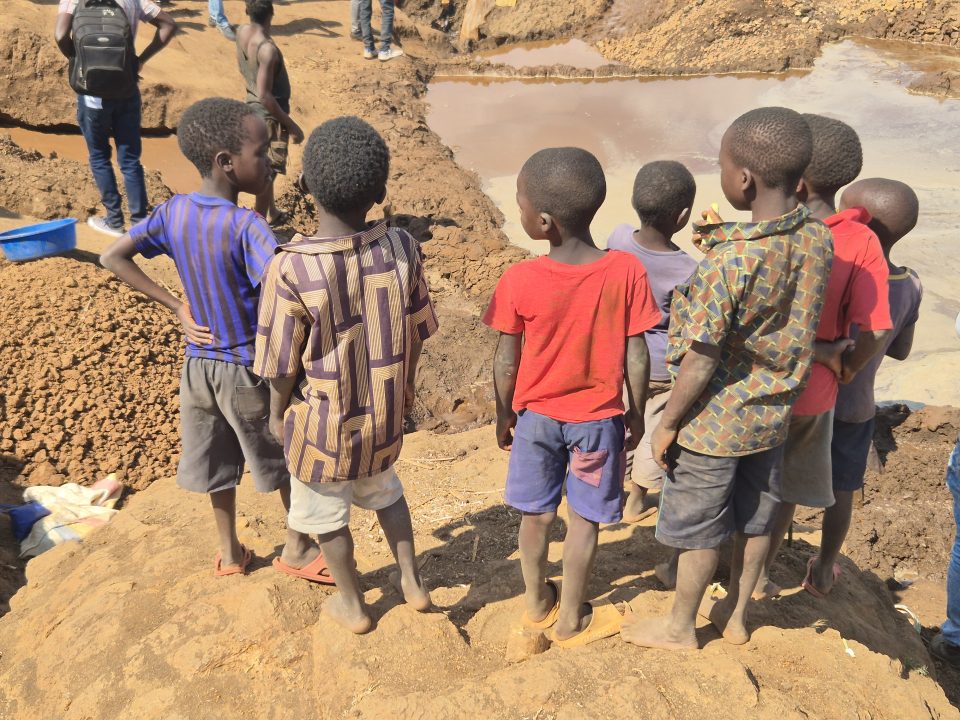In Malawi, nearly four in ten children between the ages of five and seventeen are engaged in child labour, digging mining, herding animals, burning bricks or even being forced into prostitution.
For many families, this has become a painful norm, yet the consequences are undeniable. Children are denied their right to education and trapped in cycles of poverty.
To change this reality, the Joining Forces for Africa (JOFA) project, funded by the European Union through World Vision Germany, has been working in Malawi to improve the plight of such children since 2023.
“I want to finish school and become someone in future,” says 15 year-old Christopher Chabwera, his eyes set firmly on the horizon despite the long walk to class and the empty plates that often greet him at home.
Christopher’s story is not unique. This is why through partners like Save the Children, Plan International, World Vision and SOS Children’s Villages, the initiative is giving children like him a second chance.
Christopher’s Hope After Hardship
Abandoned at six after his mother turned to prostitution and his father fell into mental illness, Christopher was left in the care of his frail grandmother. With little to eat and no school fees, he was forced to herd animals for meagre pay.
“It was a dangerous life, I could have died,” he recalls.
When a community child protection committee, supported by JOFA, stepped in, his fortunes changed. They rescued him from labour, took him back home, and re-enrolled him in school. Today, in Form Two, Christopher is determined.
“I advise other children facing abuse to report to mother groups, chiefs, or community committees. Do not suffer in silence.”
His grandmother, Bezita Sosten, chipped in:

“I only reached Form One myself, I don’t want him to drop out. Since he came back, he has been disciplined and responsible, even though challenges remain.”
Chifundo’s Second Chance
In the same district of Ntchisi, 12-year-old chifundo Banda (not real name) was once hired out by desperate families to herd goats, earning as little as K4,000 a year.
“I want to be a teacher. I’m happy to be back in school,” he says proudly, now thriving in Standard 3.
His mother Rhoda regrets ever allowing it. After being abandoned by her husband in 2015, she was left to raise seven children, including two sets of twins, on her own.
Out of desperation, she allowed little Chifundo to work, hoping he could help. But the income was meagre, and the emotional toll was immense.
“I regret my decision,” she admits. “I want my child to continue with school, even though he still faces many challenges.”
Across the areas that JOFA is working in, community voices show how attitudes are beginning to shift.
Cecilia Katulira Sokosi, a Social Welfare Officer with Lilongwe District Council, says parents and chiefs are now more aware of the dangers of child labour than ever before.

“Through children’s corners, children themselves are sharing their struggles, and we’re working hard to get them back into school.”
That awareness has been growing steadily in Traditional Authority Chimutu’s area, where Maureen Sefasi, a community development facilitator, explains that parents are starting to distinguish between normal household chores and exploitative labour.
She points to the once-booming illegal mining business that had lured many children into dangerous work.
“Parents are realizing this is not for children,” she says.
Youth leaders are also playing their part.
Esther Tony, Scorecard member and Chairperson of the Chimutu Youth Network, notes that since the project began in 2024, at least 139 children from seven schools have been returned to class.
“Before, many were digging gold or burning bricks. Now, children are staying in school,” she says.

Local leaders echo this shift. Senior Chief Kafulatira in Traditional Authority Chimutu recalls how gold mining once claimed lives.
“Since January, three children and four adults including a chief, died in the mines. After awareness campaigns, we introduced by-laws. Now, child labour has reduced dramatically.”
In Ntchisi, Kenneth Malikebu, Senior Child Protection Officer in TA Kalumo, has seen progress too.
“At least 12 children three girls and nine boys, have been rescued from labour. Families are being supported with farming inputs or vocational training so children can stay in school. It gives them hope for the future.”
With €1.3 million in funding, JOFA has brought hope to hundreds of children. But challenges persist. Malawi still relies on 2015 statistics to measure child labour, making it difficult to track progress.
Advocates are calling for a new national survey and for government to revive the long-stalled child labour policy.
As the project nears its conclusion in December 2025, partners remain optimistic.
“Child labour denies children their childhood and fuels intergenerational poverty,” project lead, Janet Nkhoma Chagoma, stresses. “This fight requires government, NGOs, the media, and the private sector to work together.”
A Future to Dream Again
For Christopher, Chifundo and countless others, the fight against child labour is deeply personal. Their voices, echoed by parents, chiefs, social workers and youth leaders, remind Malawi of what is at stake.
The message is clear, every child deserves the chance to learn, grow, and dream free from exploitation.
By Mirriam Kaliza



